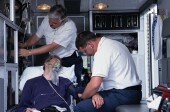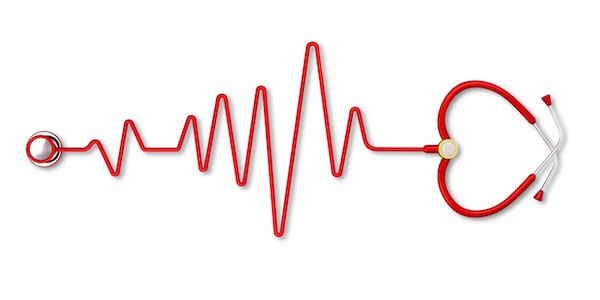
SATURDAY, Nov. 16, 2013 (HealthDay News) — Experts agree that after someone’s heart stops, the sooner CPR is started the better the chances of survival.
And now Japanese researchers report that continuing CPR for a half hour or more may help more victims survive with good brain function.
The study found that even after 38 minutes of CPR, people could still recover and have good brain function.
The findings are scheduled for presentation Saturday at the American Heart Association’s annual meeting in Dallas.
Not everyone is convinced that performing CPR for longer periods is necessarily better, however.
“I think this study has to be looked at with a lot of caution. Thirty-eight minutes is a long time, even for a young patient,” said Dr. Hector Medina, a cardiologist at Scott and White Healthcare in Round Rock, Texas. “In routine practice, after 30 minutes … we give really good thought about the feasibility of continuing the resuscitation effort, particularly in older patients.”
Medina said that because the study is being reported at a meeting and hasn’t yet been published in a peer-reviewed journal, it’s difficult to come to any firm conclusions or recommend changes to clinical practices.
To arrive at the findings, the researchers reviewed data on more than 280,000 people who had experienced cardiac arrest outside a hospital. When the patients’ hearts stopped, there had been at least one other person nearby.
The researchers then narrowed that large group down to those whose hearts started beating on their own after resuscitation. Doctors call this “return of spontaneous circulation.” This group included almost 32,000 people.
When the researchers examined those patients 30 days after their cardiac arrest, they found that just more than 27 percent had good brain function.
Those who had good brain function averaged 13 minutes from the moment their heart stopped until their heart started beating again on its own. Those with less favorable outcomes averaged almost 22 minutes of resuscitation efforts before their hearts started beating again.
Some people even had favorable outcomes after as long as 38 minutes of resuscitation efforts.
But, with each minute that passed when the heart wasn’t beating, the odds of surviving without severe brain damage dropped by 5 percent.
Dr. Suzanne Steinbaum, a preventive cardiologist at Lenox Hill Hospital in New York City, weighed in on the findings. “This study suggests that a return to spontaneous circulation by 13 minutes offered the best neurological outcomes, and beyond 38 minutes probably won’t have favorable neurological outcomes,” she said.
Both experts said it wouldn’t be possible for one person to do 38 minutes of resuscitation care on their own. In a hospital, Medina said, health care workers trade off every three minutes or so because CPR is a pretty intense workout.
Steinbaum also said the American Heart Association recently simplified its resuscitation care recommendations, and they’re now suggesting that people practice hands-only resuscitation.
Hands-only CPR guidelines advise calling 911 and then pushing hard and fast on the center of the chest (to the beat of the song “Stayin’ Alive”) until help arrives. Doing hands-only CPR can double a person’s chance of survival, according to the AHA.
Other research to be presented at the same meeting on Saturday found that when people at a shopping mall were shown a one-minute video detailing hands-only CPR, they were more likely to call 911 if they witnessed someone collapse. They also were more likely to initiate hands-only CPR sooner.
“Don’t feel like you can’t do anything,” Steinbaum said. “Call for help and start compressions.”
More information
Learn more about how you can save someone’s life at the American Heart Association.
Copyright © 2026 HealthDay. All rights reserved.

